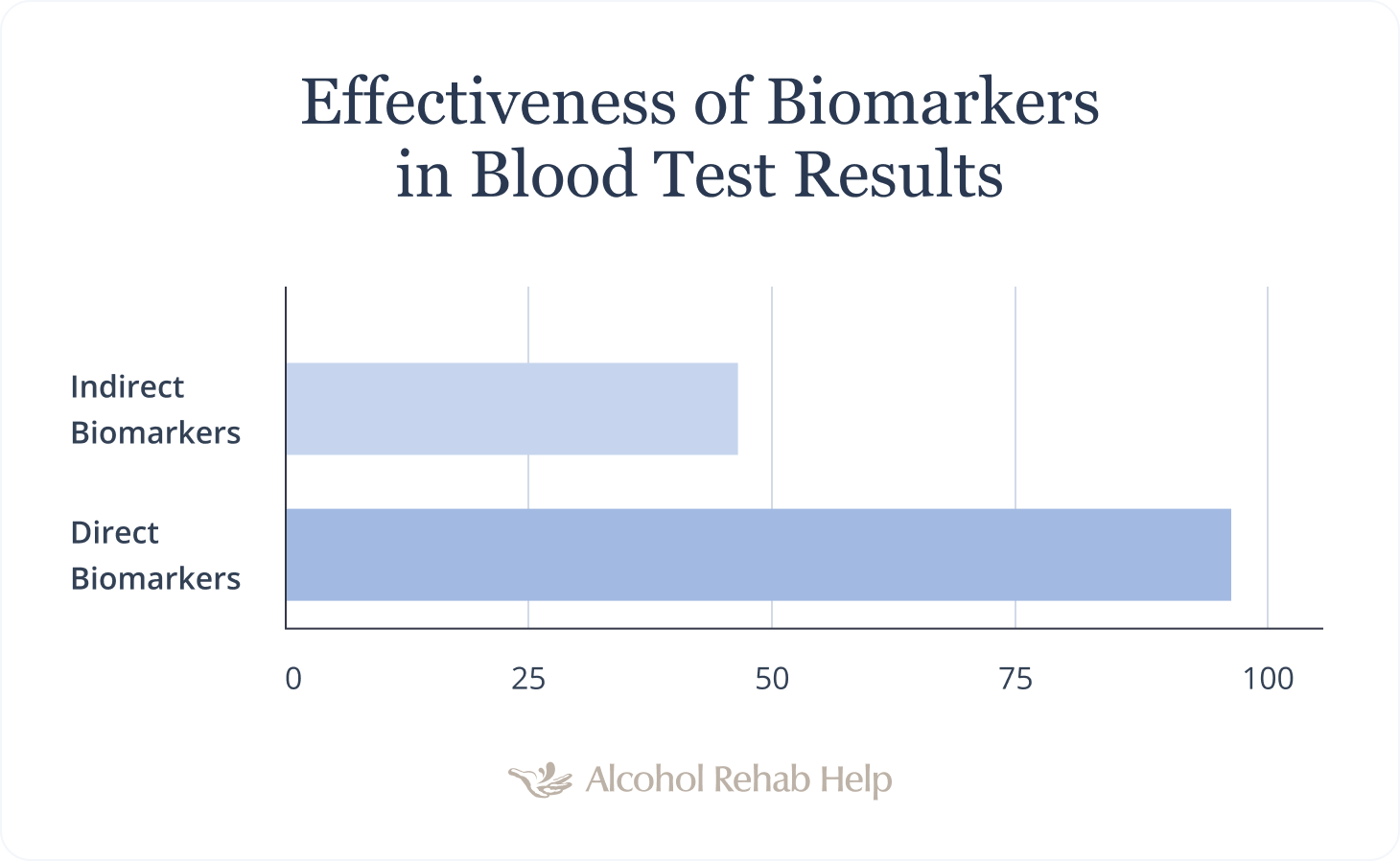Drinking Alcohol Before Drawing Blood
Blood Tests and Heavy Alcohol Consumption
Blood tests are one of the most reliable methods for detecting heavy alcohol consumption. They can also effectively measure blood alcohol content (BAC).
While effective, there are a few things to know about the tests before accepting the results.
In the U.S., one-fifth of patients in primary care clinics report drinking alcohol to the point where it can harm their health. However, one-fourth of people also report binge drinking within the past month.
Research also shows that people who drink unhealthy amounts of alcohol tend to underestimate how much they consume. This makes blood testing a useful tool for measuring realistic alcohol consumption, especially for those seeking treatment.
Testing is also used in health care for people managing conditions related to alcohol consumption, such as liver disease or damage.
Direct and Indirect Biomarkers

Most blood tests rely on direct and indirect biomarkers, which show how a person's organs function.
Indirect biomarkers are affected by alcohol consumption, but alcohol is not the only thing that can affect them.
Direct biomarkers, on the other hand, only arise after alcohol consumption. This makes them an accurate predictor of the amount of alcohol someone has recently consumed.
In the past, blood tests relied on indirect markers to determine BAC. In some cases, indirect biomarker tests are as low as 44 percent accurate.
Direct biomarker testing is approximately 99 percent accurate. The results from a direct biomarker blood test are even more reliable when confirmed through fingernail and hair testing results.
Summary
Blood tests are useful tools used in measuring blood alcohol concentration. Between direct and indirect biomarkers, direct biomarkers are considered more accurate, with an accuracy rate of 99 percent.

ALCOHOL REHAB HELP
Alcohol Treatment Near You
Rehabilitation Services To Help You or Your Loved One Overcome Your Alcohol Use Disorder.
Call now (855) 772-9047
CDT Testing for Alcohol Abuse
CDT Testing, which is short for carbohydrate-deficient transferrin, is an alcohol biomarker test.
Transferrin is a substance in the blood that carries iron to the bone marrow, liver, and spleen. When someone drinks too much, it increases certain types of transferrin that are carbohydrate-deficient.
It also helps determine if someone is:
- Misreporting alcohol consumption
- Drinking heavily
- Binge drinking
- Struggling with alcohol relapse
CDT testing works by measuring the amount of carbohydrate-deficient transferrin in a person's system. Moderate drinkers or non-drinkers have lower levels of carbohydrate-deficient transferrin.
Heavy drinkers drink four or more drinks per day (at least five days a week for two weeks before the test). These people tend to have significantly higher levels of carbohydrate-deficient transferrin.
Effectiveness of CDT Tests
CDT testing is accurate, but not foolproof.
This is because heavy drinking doesn't trigger an increase in carbohydrate-deficient transferrin for everyone. If someone suspected of drinking has low carbohydrate-deficient transferrin, medical professionals encourage follow-up use of other alcohol biomarker tests for the most accurate results.
Despite it being imperfect, CDT testing is the only test sensitive enough to detect relapse or reduction in alcohol use. Many therapists use CDT testing to determine a baseline level for patients when treatment begins.
Summary
Carbohydrate-deficient transferrin (CDT) is an alcohol biomarker test. Although not completely perfect, it is a very sensitive test that is able to detect a relapse or a decrease in alcohol consumption.
Alcohol Use Biomarkers
Other biomarker tests support or disprove the results of a CDT test. Selecting the proper test varies from person to person.
The best tests are easy to obtain, inexpensive to evaluate, and acceptable to patients and therapists.
Biomarkers differ based on several factors, including:
- Age
- Gender
- Ethnicity
- Health status
The specific markers used to detect a high level of alcohol exposure include:
- Ethanol
- Ethyl sulfate (EtS)
- Ethyl glucuronide (EtG)
Specific markers for chronic alcohol use include:
- Carbohydrate-deficient transferrin (CDT)
- Phosphatidylethanol (PEth)
Nonspecific markers include:
- Aspartate aminotransferase (AST)
- Alanine aminotransferase (ALT)
- Gamma-glutamyl transferase (GGT)
- Mean corpuscular volume (MCV)
Each biomarker testing method has advantages and disadvantages. Experts recommend using a combination of tests to confirm the status of a person's alcohol intake.
Summary
There are many types of biomarkers used to measure blood alcohol concentration. Factors like age, gender, health status, and ethnicity affect different biomarkers. Use a combination of different biomarker tests to get accurate results.

ALCOHOL REHAB HELP
Get Help for You or Your Loved One
Find The Right Treatment Center For You. Rehab Can Help You Feel Better. We Find The Right Treatment Center For You.
Call now (855) 772-9047
Can You Drink Alcohol Before a Blood Test?
If you are getting blood work done, it's best to avoid alcohol consumption, especially for fasting blood tests. Drinking alcohol can cause irregular enzyme, blood sugar, and fat levels and give inaccurate blood test results.
Avoid drinking alcohol before taking these common blood tests:
- Cholesterol tests
- Triglyceride tests
- Lipid panel blood tests
- Blood glucose tests
- Hepatitis tests
- Liver function tests
If you have a blood test coming up and are unsure whether you can drink or not, it's best to avoid drinking any alcohol at all, especially the night before.
Consult a health care professional for more medical advice if you have further questions or want to explore treatment options/resources.
Alcohol Use Statistics
85.6
Percent
Of Americans ages 18 and older reported that they drank alcohol in their lifetime.
25.8
Percent
Of Americans ages 18 and older reported that they engaged in binge drinking in the last month.
14.5
Million
people have alcohol use disorder (AUD).
Drinking Alcohol Before Drawing Blood
Source: https://alcoholrehabhelp.org/blog/blood-test/
0 Response to "Drinking Alcohol Before Drawing Blood"
Post a Comment